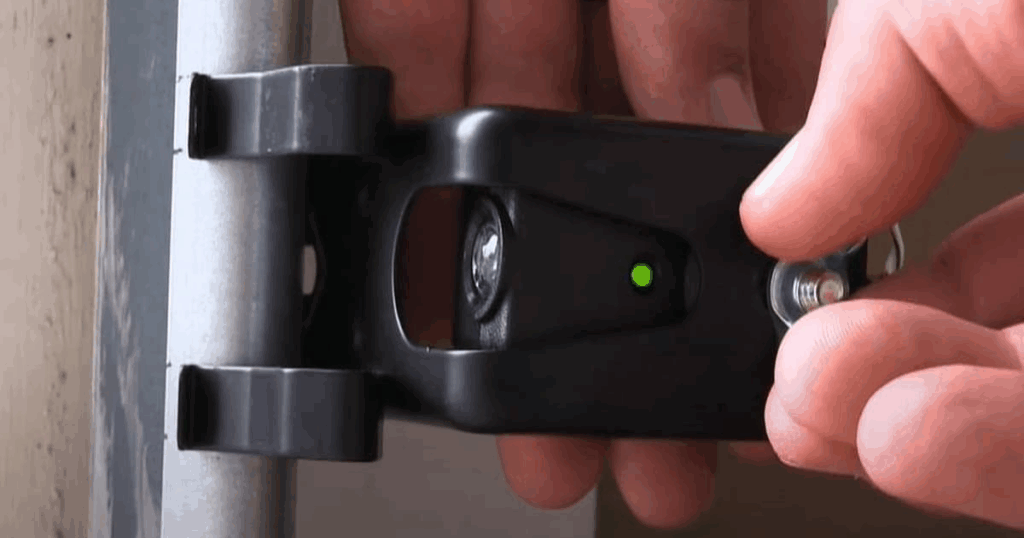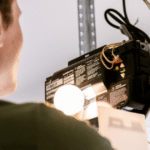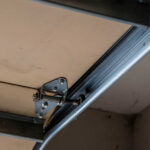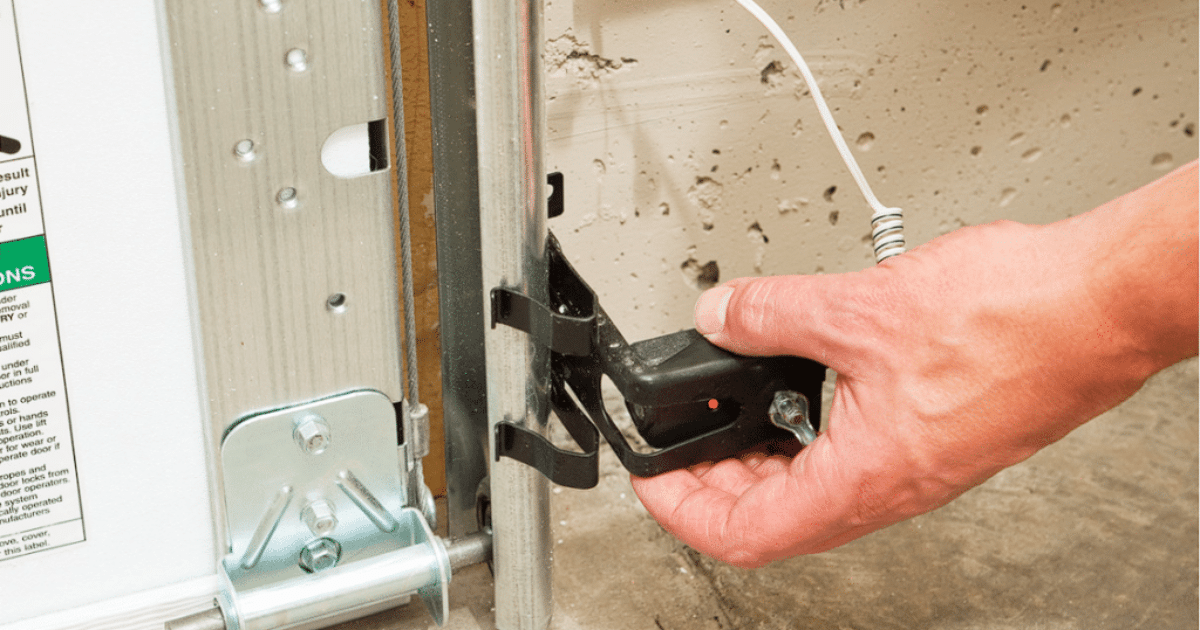If you’re looking to understand how to override garage door sensors, you’re not alone. Many face sensor issues that hinder the functionality of their garage door. This article will guide you through safely and effectively managing these sensors, ensuring a seamless experience. By following these tips, you can maintain the security and functionality of your garage door without hassle.

Garage door sensors are essential for safety, as they prevent accidents by detecting obstacles. However, they can occasionally malfunction, causing inconvenience. Understanding how to override garage door sensors temporarily can be crucial in emergencies. This guide will cover everything from identifying common sensor issues to providing a step-by-step guide on safely overriding them, helping you make an informed decision.
Understanding Garage Door Sensors: What They Do and Why They Matter
Garage door sensors are safety features that prevent the door from closing if something is in the way. They’re usually installed near the bottom of the garage door tracks and use an invisible beam to detect objects. If that beam gets blocked, the door won’t shut.
Types of Garage Door Safety Sensors
There are two main types: photo eye sensors and pressure sensors. Photo eyes use infrared light, while pressure sensors respond to physical force. Knowing which type your system uses can help when dealing with issues such as a blinking sensor light or a door that won’t close properly.
Why You Shouldn’t Ignore Sensor Problems
Trying to override a faulty garage sensor might seem like a quick fix, but it can lead to bigger safety risks. Instead, keep your sensors clean, aligned, and test them often. If problems persist, seek help from a professional to ensure things stay safe and running smoothly.
Common Issues with Garage Door Sensors
Garage door sensors help keep your home safe, but they can run into problems over time. Knowing what causes these issues makes it easier to fix them fast and keep your garage door working smoothly.
Sensor Misalignment
If garage door sensors aren’t perfectly aligned, the door won’t close. Vibrations or bumps can shift them out of place.
Dirty Sensor Lenses
Dust, dirt, or cobwebs on the photo eye sensors can block the beam, stopping the door from closing correctly.
Damaged or Loose Wires
Frayed or disconnected wires can cause the garage door sensor light to blink or stop working. Check and replace damaged wires.
Sunlight Interference
Strong sunlight may block the infrared beam. Use sun shields or slightly angle the sensors to prevent light interference.
Old or Faulty Sensors
Worn-out garage door safety sensors may stop working. If cleaning and alignment fail, consider replacing the sensors completely.
Safety Precautions Before Overriding Sensors
Before attempting to override garage door sensors, it’s essential to prioritize safety. A few simple steps can help you avoid injuries or accidents while working on them.
1. Clear the Area Around the Door
Make sure no people, pets, or objects are near the garage door. If the door moves suddenly, this step prevents injury or damage.
2. Know How to Use Manual Operation
Learn how to use the garage door’s manual release cord, usually a red handle. It lets you open or close the door safely by hand.
3. Wear Protective Gear
Put on safety gloves and goggles when working with garage door safety sensors or wires. This helps prevent cuts, shocks, or damage to sensors.
Simple Guide on How to Override Garage Door Sensors
Garage door sensors are designed for safety, but they can sometimes malfunction. If you need a temporary fix, here’s how to override garage door sensors the right way.
Step 1. Identify the Sensors
Check near the bottom of both sides of the garage door track to locate the sensors. They’re small box-like devices that send an invisible beam to detect obstructions.
Step 2. Check Alignment
Make sure both sensors face each other perfectly. If the lights on them are blinking or off, gently adjust until both lights stay solid and steady.
Step 3. Clean the Sensors
Use a soft, dry cloth to wipe the sensor lenses carefully. Dirt, debris, or cobwebs can disrupt the infrared beam and stop the garage door from closing properly.
Step 4. Inspect the Wiring
Look at the wires connected to each sensor. If they’re loose, frayed, or cut, you may need to reconnect or replace them to restore power.
Step 5. Override the Sensors
- For Temporary Override: Disconnect the sensors by unplugging them from the device. This should only be done as a temporary measure.
- Manual Operation: Use the manual release cord to manually operate the door. This is a safer option than leaving the sensors disconnected.
Step 6. Test the Door
After overriding, open and close the door slowly. Ensure it moves smoothly and remains stable during operation to prevent any safety hazards.
By following these steps, you can safely override your garage door sensors when necessary. However, remember that this is a temporary solution, and addressing the root cause of sensor issues should be a priority.
Alternative Solutions to Sensor Problems

Sometimes, sensor problems don’t need a full override. Before learning how to override garage door sensors, try these safer and smarter alternatives to keep your system running smoothly.
1. Regular Maintenance
Schedule routine garage door tune-ups to catch sensor issues early. Regular checks can prevent dirt buildup, misalignment, or wear that causes the sensors to stop working.
2. Upgrade Sensors
Old garage door safety sensors can often fail. Upgrading them to modern, reliable models can enhance performance, improve safety, and minimize future repair issues.
3. Professional Inspection
Call a garage door technician for a full sensor inspection. They will inspect for hidden problems, repair wiring issues, and provide safe, long-term solutions for your system.
4. DIY Repairs
You can handle basic fixes, such as cleaning sensor lenses or adjusting the beam. Be sure to be confident before performing any hands-on garage door sensor repair.
These simple alternatives help you resolve sensor issues without compromising safety features. Always explore safe fixes before deciding how to override garage door sensors temporarily.
When to Call a Professional for Help
While many garage door sensor problems can be resolved by cleaning or adjusting, some issues require expert assistance. If basic fixes don’t work, it’s best to call a professional for garage door repair. Don’t risk safety by guessing or forcing the system to work.
Garage door technicians have the right tools and expertise to identify more complex issues. They can inspect wiring, test safety sensors, and ensure everything operates correctly. Additionally, they can guide you on future maintenance, helping you avoid recurring issues with photo eyes or misaligned sensors.
If your garage door sensors keep malfunctioning or you’re not confident with wiring, seeking professional help is the safest option. Their experience helps prevent injury, avoid door damage, and keep your system in good shape for the long haul.
Preventive Maintenance for Garage Door Sensors
Preventive maintenance is crucial for ensuring the longevity and proper functioning of garage door sensors. Implementing a regular maintenance schedule can prevent many common issues before they arise.
1. Monthly Inspections
Conduct monthly inspections of the sensors to check for alignment, cleanliness, and wiring integrity. Address any issues immediately to prevent them from escalating.
2. Annual Professional Check-Ups
Schedule annual check-ups with a professional technician. They can perform thorough inspections and maintenance, addressing any components that require attention.
3. Keep Sensors Clean
Clean the sensor lenses often using a soft cloth to keep dust and debris from collecting and causing issues. This simple task can significantly improve sensor performance.
By incorporating these maintenance practices, you can prolong the life of your garage door sensors and ensure they continue to function reliably.
FAQs About Override Garage Door Sensors
Why Won’t My Garage Door Close Unless I Hold the Button?
If you have to hold the wall button, your garage door safety sensors may be blocked, dirty, or misaligned. The system thinks something’s in the way. Wipe the sensor lenses, adjust their position so they face each other, and look for solid lights to confirm they’re working properly.
How to Override Garage Door Sensors During a Power Outage?
In a power outage, use the red emergency release handle to detach the opener from the garage door system. This lets you open or close the garage door manually. This method doesn’t involve bypassing the sensors and is a safe, temporary way to operate the door.
Are There Any Legal Risks in Bypassing Garage Door Sensors?
Bypassing garage door sensors can pose significant legal risks, particularly if it results in injury or property damage. In many areas, safety sensors on garage doors are legally required to help prevent accidents. If you must bypass them, only do so temporarily and with caution.
Can Sunlight Cause Garage Door Sensors to Malfunction?
Yes, direct sunlight can interfere with garage door photo eye sensors. The sunlight can block or confuse the infrared beam, making the door stop or reverse. To solve this, try adjusting the sensor angle or installing sun shields to block direct light and reduce signal interference.
How Do I Align Garage Door Sensors to Avoid Overriding?
To align garage door sensors, ensure that both are facing each other evenly and that the indicator lights are solid. If one light is blinking, gently adjust the sensor until the beam reconnects. Proper alignment ensures the door operates smoothly without requiring sensor override.
Conclusion
Knowing how to override garage door sensors can be helpful in case of unexpected issues, but safety should always be the top priority. While it may seem like a quick fix, skipping proper steps or ignoring warning signs can lead to more significant problems. Always check alignment, wiring, and cleanliness before considering an override.
If your sensors continue to malfunction or you’re unsure about handling the repair yourself, it’s best to call the professionals. For expert help, Michigan Door offers trusted garage door repair in Michigan, to keep your system safe and running right. Our team can quickly identify and resolve the root cause of the issue.
Act early before a minor problem turns into an expensive fix. If you’re still experiencing problems or need assistance understanding how to override garage door sensors, please reach out to us today. Call Michigan Door, and let our friendly technicians handle the hard part for you. Your safety matters.
End Note
Seeking reliable assistance with your garage door? Michigan Door provides quick, reliable service you can trust every time. From garage door repair and emergency service to opener repair and off-track fixes, our experienced team is ready to solve your garage door problems quickly and safely.
We provide complete garage door service, including annual tune-ups, maintenance, and new door installation. Choose from top-quality brands like Amarr and LiftMaster, or browse our full product selection. Whether you need help with your garage door opener or want expert installation, we’re here to help.
Looking for friendly, reliable service? Visit our ‘Contact Us’ page now or follow us on Instagram to view our work. Check out our blog for helpful tips, view locations to see if we work in your areas, and learn more on our About Us page. Choose a trusted local garage door repair with Michigan Door today.





